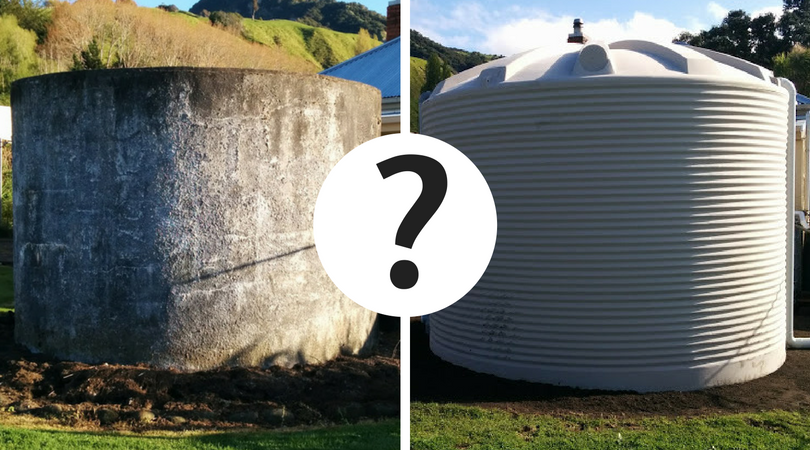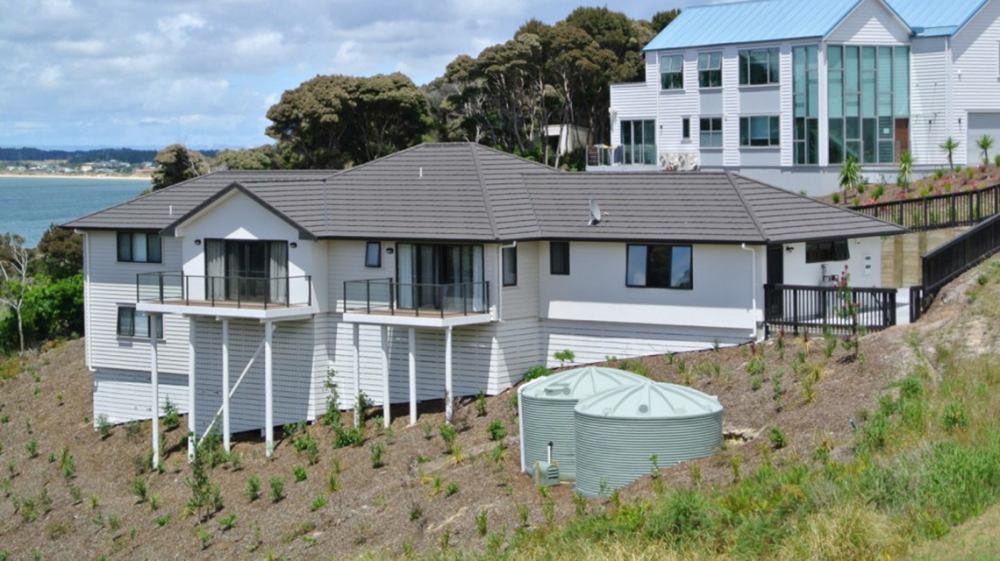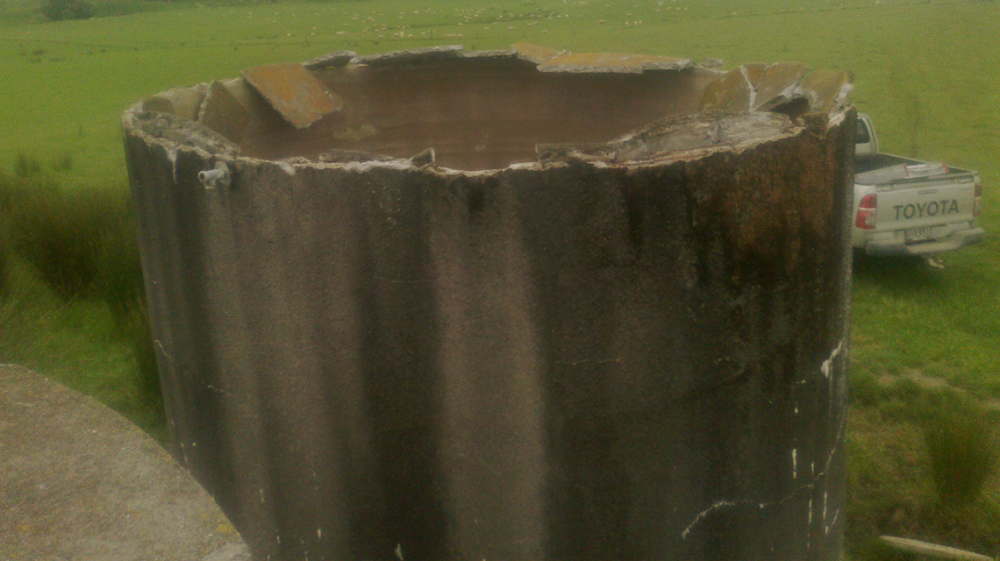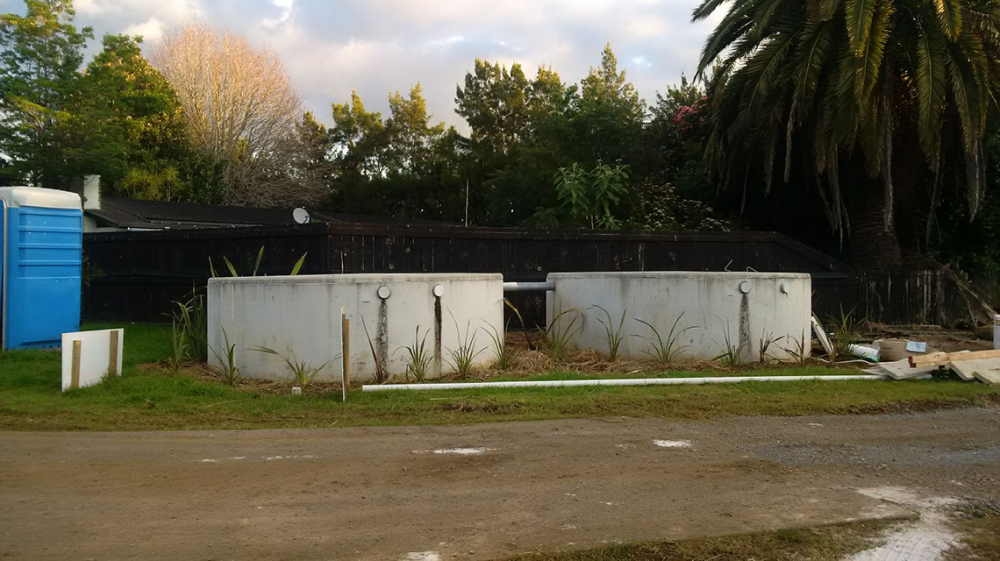Friday, 1 August 2025 Knowledge Articles
What type of Water Storage Tank is best - Concrete or Plastic?
We're Not Bashing Concrete, But Plastic Rocks!
When discussing the respective merits of plastic water storage tanks and their concrete counterparts, there are no prizes for guessing where our loyalties lie. Promax is New Zealand's premier manufacturer of superior polyethylene water storage and transport products. Our plastic water tanks combine several significant advantages that make them the smartest choice for residential or rural settings. But this article is not entirely dismissive of concrete tanks. We’re happy to list their major advantages alongside their disadvantages:
Concrete tank Pros:
- Concrete tanks can be buried underground. This is a good thing to do for aesthetic reasons as burying them removes what can be a blot on the landscape.
- Keeps water cooler due to insulation value of concrete.
Concrete tank Cons:
- If your site is not accessible for a hiab or similar, the tank will have to be built on site.
- It is not easy to retrofit new outlets to a concrete tank.
- The tank may be damaged by earthquakes.
- They are more expensive to buy and install than plastic tanks.
To give you a simple comparison, here are the pros and cons of our plastic storage tanks:
Plastic tank Pros:
- Plastic tanks are lighter and easier to manoeuvre into position. Yet they're not lacking in strength – you can bury a Promax corrugated tank up to a depth of one metre.
- It is relatively straightforward to retrofit outlets.
- Because they can flex a little, plastic tanks can withstand earthquakes.
- They're a lot more cost effective than concrete tanks to buy and install.
- Promax ENDURO Aboveground tanks can be buried up to one third of their height in the ground
Plastic tank Cons:
- Most standard plastic storage tanks can't be fully buried however you can help to hide them with planting. (Don’t forget, Promax ENDURO Aboveground tanks can be buried up to one third of their height in the ground)
By choosing a Promax plastic tank, you're in good company. The rotationally moulded plastic water tank is New Zealand's most popular tank. One of the main reasons for this is the rotational moulding industry has a comprehensive standard that covers both the raw materials and manufacturing of the completed water tanks. We construct these tanks from food-grade standard materials, compliant with AS/NZS 2070: Part 1 and Part 8 Australian Standards for Food Contact. In addition, if the water in the tank is intended for human consumption, the plastic material must comply with the potable-water standard AS/NZS4020: 2002 Potable (Drinking) Water Standard.
By its very nature, concrete is highly alkaline. Plastic, on the other hand, is inert. That means you can start using the tank straight away without having to fill it up and then flush it out. Polyethylene will not rust or suffer from corrosion in the same way metal and concrete do, contributing to our tanks' long life.
Poly tanks are typically made in one piece. Therefore, there are no joints or seams where parts of the tank have been welded together, and no sealants are used to join pieces of the tank together.
Promax only uses materials that comply with AS/NZS4766: 2002 Polyethylene Storage Tanks for Water and Chemicals that inhibit algae growth. Meanwhile, light transmission is a potential problem that fibreglass tanks need to manage; this isn't an issue for our plastic storage tanks.
Polyethylene tanks can be recycled at the end of their service life, but they won't become water tanks again. This is because potable water regulations state that we must use only virgin plastics in new tanks. However, there are many other product applications for recycled plastic, and with the addition of sun and heat protection, it can serve another vital purpose for many years. As a company that wants to do our bit to look after the environment, this sustainability is something we embrace.
We're loyal to plastic water tanks, and for many good reasons! Should you reach the same conclusion and want to know which Promax product will best suit your requirements, we’re right here.
Contact us for further information and advice to help you make the right decision.




